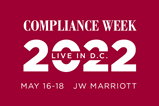Compliance Week is excited to announce the publication of its first-ever case study, a deep dive into the history of environmental transgressions at Carnival, its path back to compliance under new leadership and a corporate monitor, and its shift to crisis management mode once COVID-19 upended the cruise industry earlier this year.
The case study, which is nearly 20,000 words and will be available only to CW members, will be published over the course of four days, from Sept. 14-17.
More about our case study
With a fleet of over 100 vessels, Carnival is the largest cruise line operator in the world. Yet, the company is saddled with a history of environmental transgressions. Carnival pled guilty in 2017 to illegal discharges off the coast of England. Further subterfuge was subsequently uncovered by authorities, suggesting Carnival’s problem wasn’t merely environmental but cultural.
How does a global company prevent, detect, respond, and correct compliance failures across a multitude of floating cities? How does it build a culture of ethical integrity that inspires employees to speak up when they bear witness to wrongdoing?
CW’s case study dives into the cruise line operator’s new Ethics and Compliance (E&C) program. The report examines:
- Past compliance failures;
- E&C’s organizational restructuring;
- Strategic plan and action steps;
- Innovations in compliance training;
- Exclusive interviews with E&C’s leadership team, including Chief Ethics and Compliance Officer Peter Anderson;
- Working with a court-appointed monitor.
In the midst of Carnival’s ethics and compliance turnaround (and, transparently, in the middle of our writing of the report), the world was upended by COVID-19. This case study further investigates the impact of the pandemic on Carnival’s E&C program and looks at how progress made in 2019 helped inform the company’s reaction to the coronavirus.
This is a members-only case study; join Compliance Week today to receive access.

















No comments yet